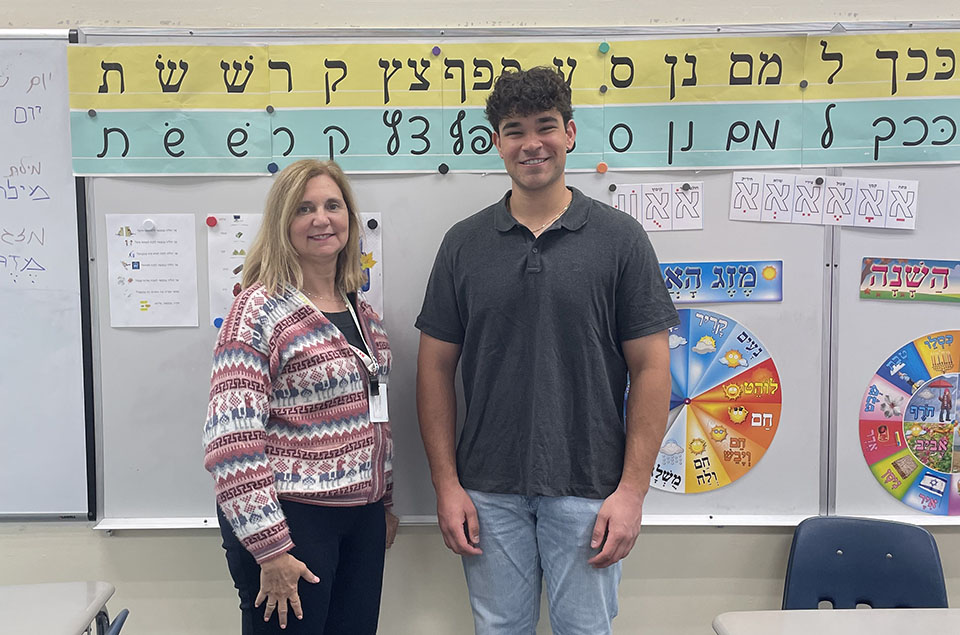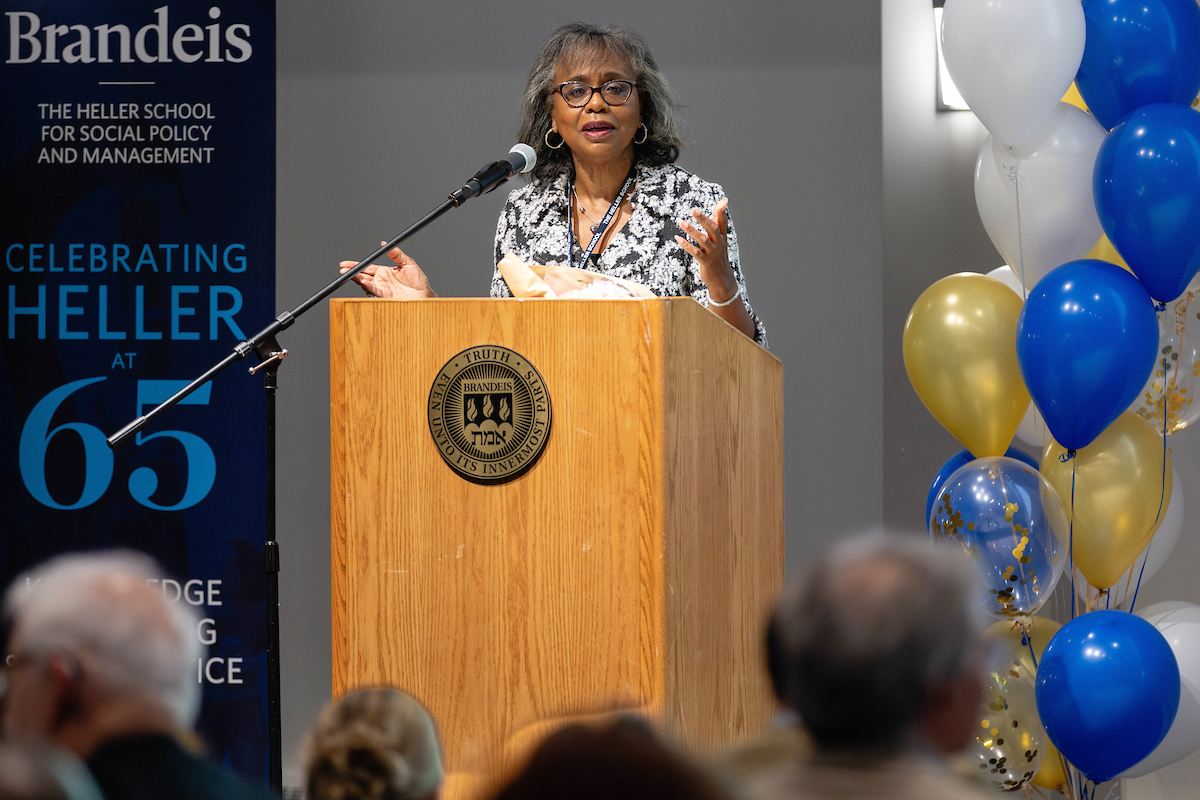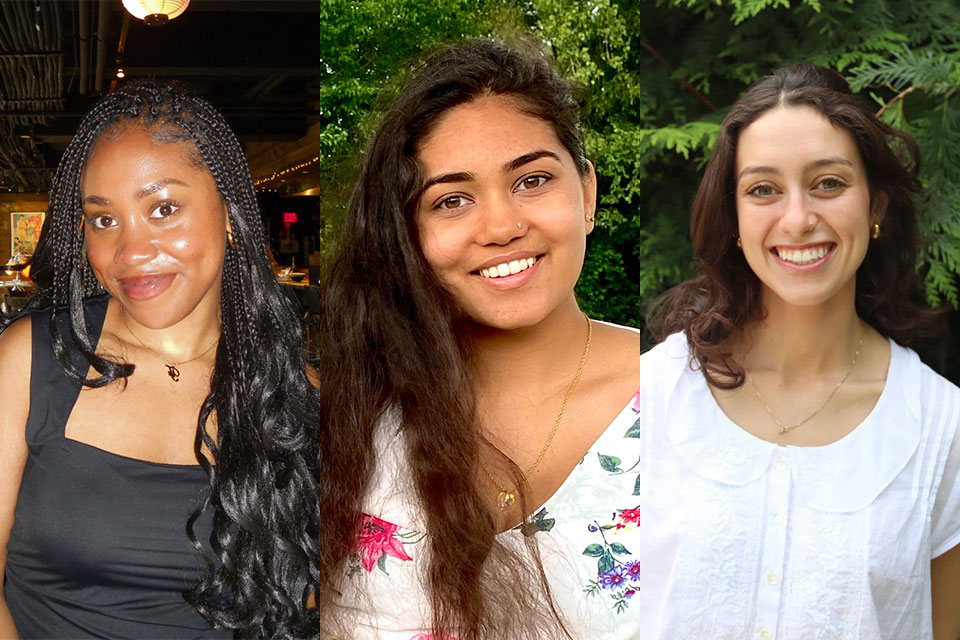Expanding the pipeline: Brandeis Consortium develops Hebrew education to meet global needs

October 30, 2024
The Consortium for the Teaching of Hebrew Language and Culture at Brandeis is working to expand exponentially the number of proficient Hebrew speakers worldwide — one student, one teacher, one school at a time.
The driving insight of the Brandeis Hebrew Consortium is that the shortage of effectively trained Hebrew educators explains the challenges of broadening proficiency. Launched in 2022, the consortium aims to address this shortage through degree programs, certificates, and training opportunities for increasing the pipeline of Hebrew educators that are all infused with the research-based educational design of the Brandeis Hebrew pedagogy.
“The distinctiveness of the Brandeis Hebrew pedagogy is two-fold: it carries almost two decades of proven success in proficiency outcomes as the curricular foundation of the Middlebury School of Hebrew,” said Jessica Liebowitz, Chair of the Advisory Council of the Brandeis Hebrew Consortium. She added that it also “places at the forefront of teacher training the power of language to unlock communal participation and belonging.”
As a result, the Brandeis Hebrew pedagogy demands depth of knowledge in Jewish and Israeli history, religion, and culture, which prepares best-in-class Hebrew educators to more effectively reach the motivation of students at all levels, even as students change, and as the world changes.
The Consortium was established through a partnership between Brandeis University, Middlebury College, Queens College, and Universidad Hebraica in Mexico City.
One of the pipeline-development initiatives launched by the Consortium is called the Brandeis Hebrew Fellowship. The Hebrew Fellows — all Brandeis undergraduates and graduate students — are trained through mentoring by professional Hebrew teachers in Jewish day schools in the Boston area, while they also teach students.
“We understand that to be able to be successful in language, you need to have professional teachers,” said Vardit Ringvald, consortium director and research professor at the Mandel Center for Studies in Jewish Education and in the Education Studies department.
“We are trying to develop different approaches for training the best Hebrew language educators,” Ringvald added. “We need to expand the number of Hebrew educators who are professionals and are qualified to teach the language and its culture.”
“It’s been so special getting to immerse these young kids in a whole new language.”
Leah Trashanksi ’27
Leah Trashanksi ’27 was selected to volunteer at the Rashi School in Dedham. She spent the spring 2024 semester working in both kindergarten and 4th grade classrooms. Born in Israel and raised in California, Trashanksi is bilingual in English and Hebrew. Her favorite part of the experience has been getting to see students grow in curiosity as they learn.
“It’s been so special getting to immerse these young kids in a whole new language,” she said, referring to the kindergarten students. “I’m fluent, but they know barely any words. We’re opening the floodgates to them.”
Over the past two years, 11 Brandeis students have worked in four Jewish day schools around Boston. Educators at the schools say the addition of the Hebrew Fellows has helped invigorate their Hebrew language programs.
“We really enjoyed having the fellows,” said Jonah Hassenfeld, Director of Learning and Teaching at Solomon Schechter Day School in Newton, Massachusetts. “I hope their experience was helpful in sparking an interest in a career as a Hebrew teacher.”
Dorit Zmiri, Director of Jewish Studies and Hebrew Language at the Jewish Community Day School in Watertown, said their Hebrew Fellow “helped in every way possible during the frontal lesson and during the individual work…We greatly appreciate the opportunity to collaborate with you.”
The Hebrew Fellows came away from their time in the classroom with as much inspiration as their mentors and students.
“It was beyond rewarding for me to see the day-to-day impacts I had on the students in addition to the opportunities I had to keep working on my Hebrew in the context of my desired professional field,” said Hebrew Fellow Jadyn Maher. “As I enter my final year at Brandeis, I am glad to have had this experience as another step toward my interdisciplinary professional goals.”
“When I heard about this fellowship, I knew I wanted to jump on this opportunity. As an Israeli living abroad, it was important to me to share my experience, especially in light of the ongoing war,” said Hebrew Fellow Noam Reiner.
Tal Bar Zvi said he discovered how vital it is to personalize lessons to each student’s level while at Solomon Schechter Day School. “I learned a lot about different teaching techniques, and I learned what works best for struggling students.”
With its multiple touch-points to key stakeholders in the mission of elevating the quality of Hebrew language and culture education – including students, educators, researchers, scholars, and communal leaders – the Brandeis Hebrew Fellowship promises to showcase a new type of model of success for elevating the quality of Hebrew language and culture education.


